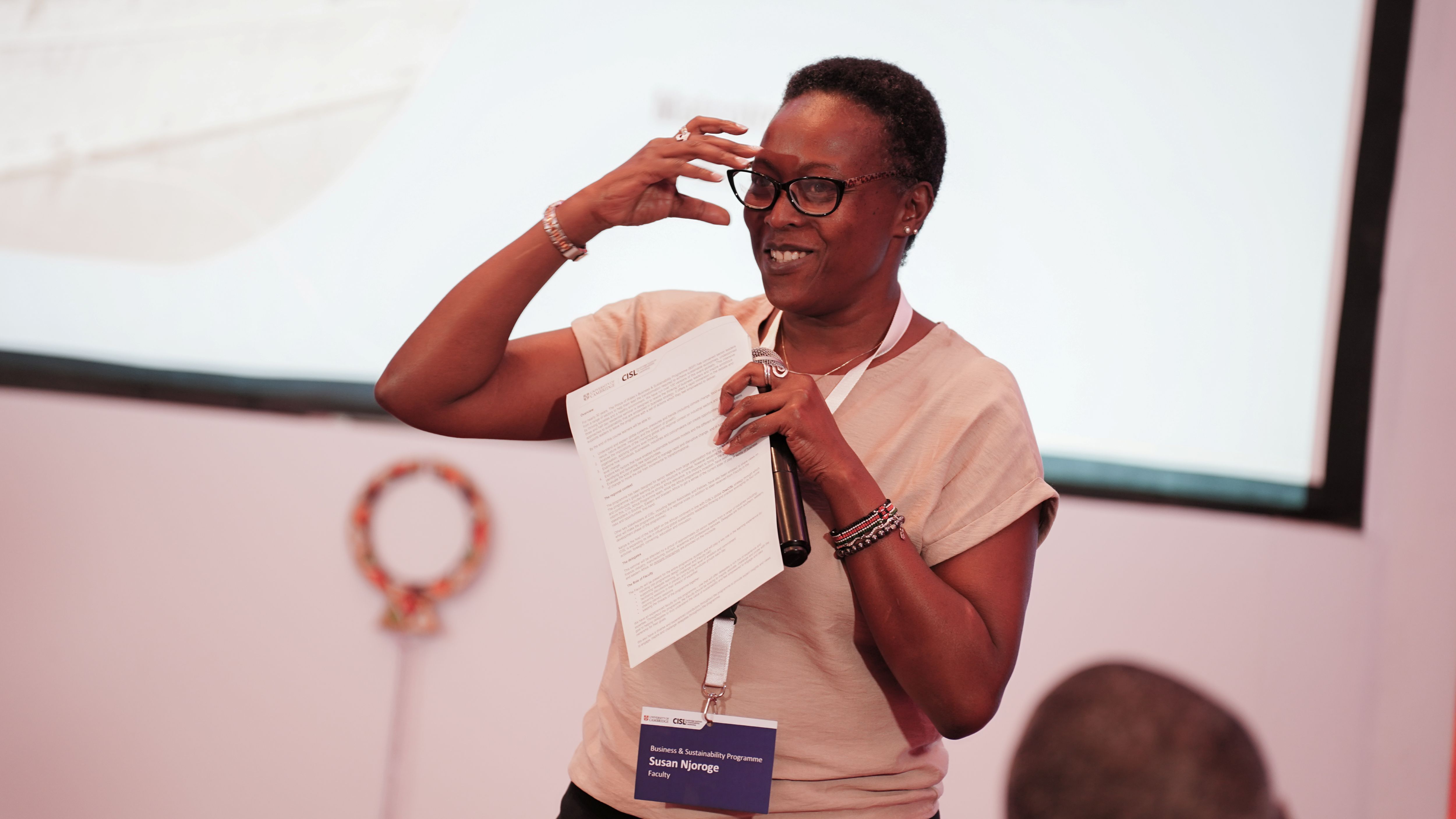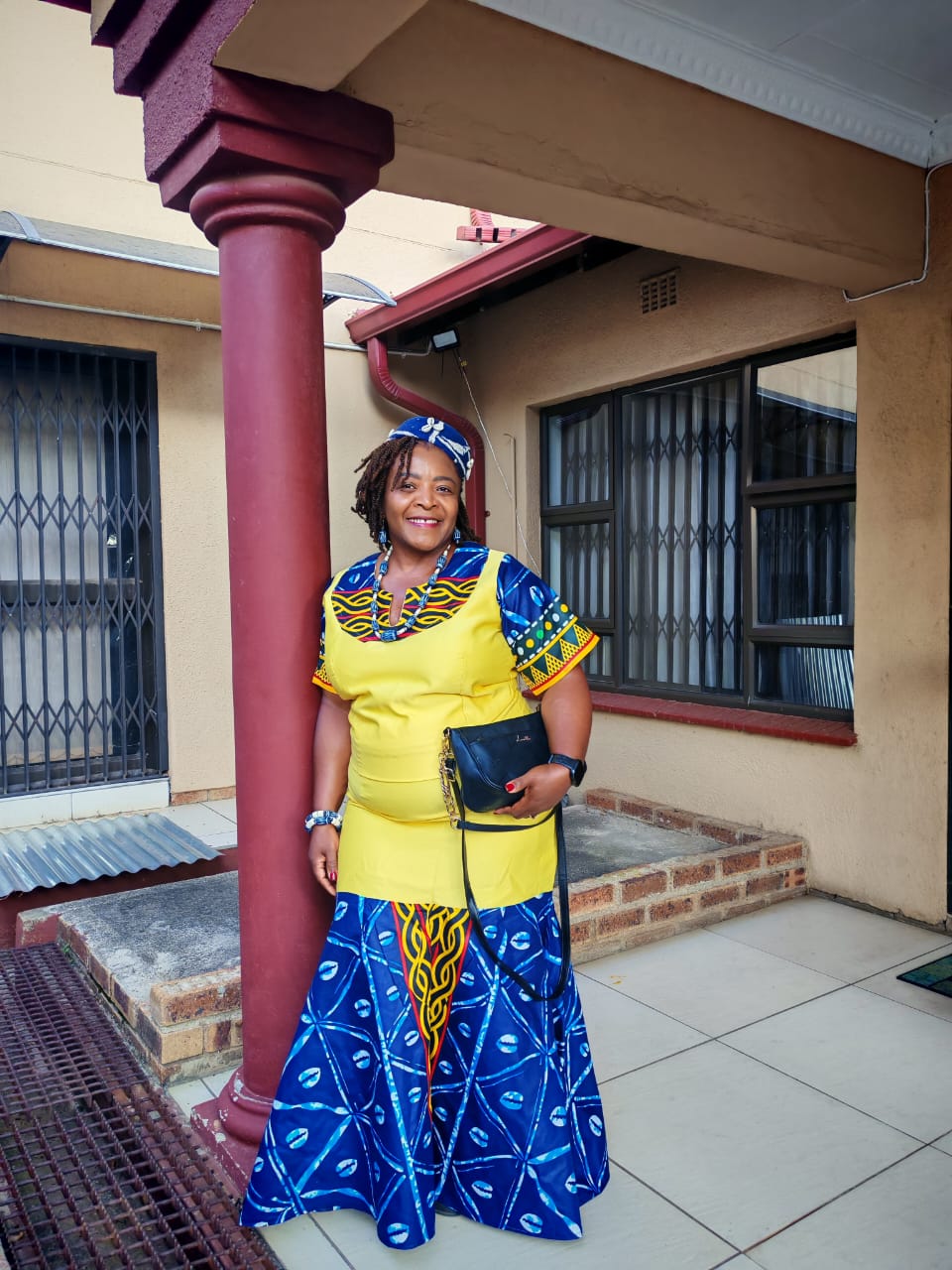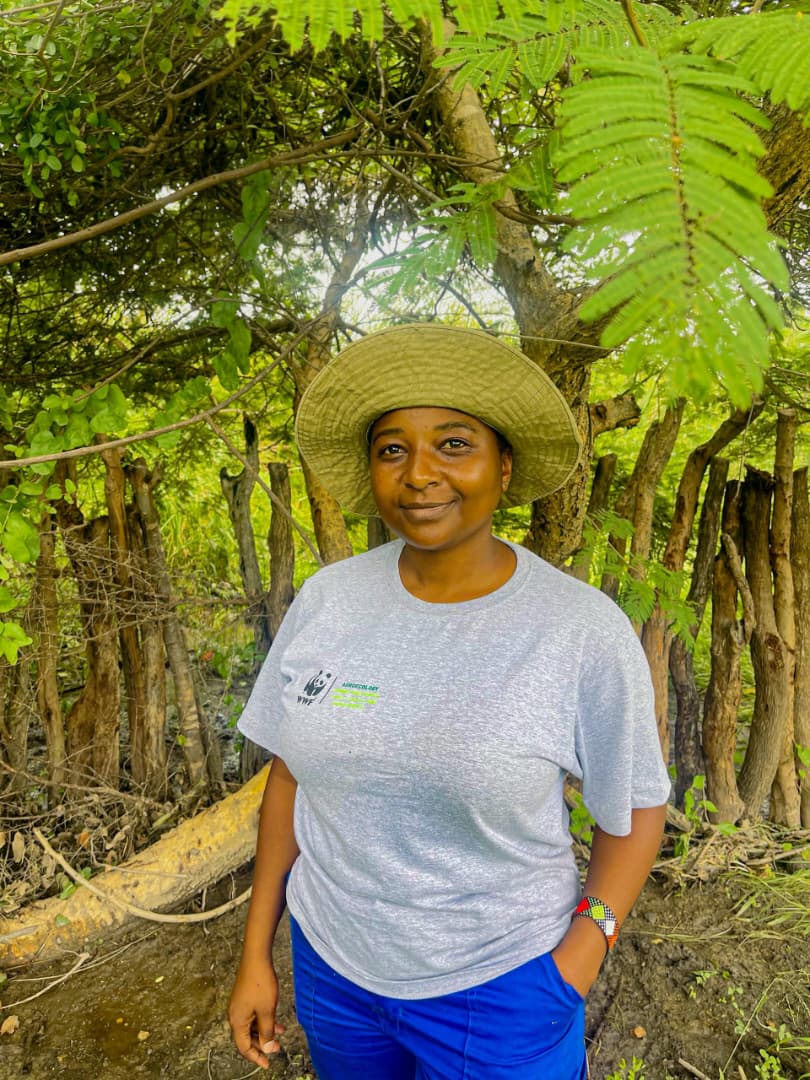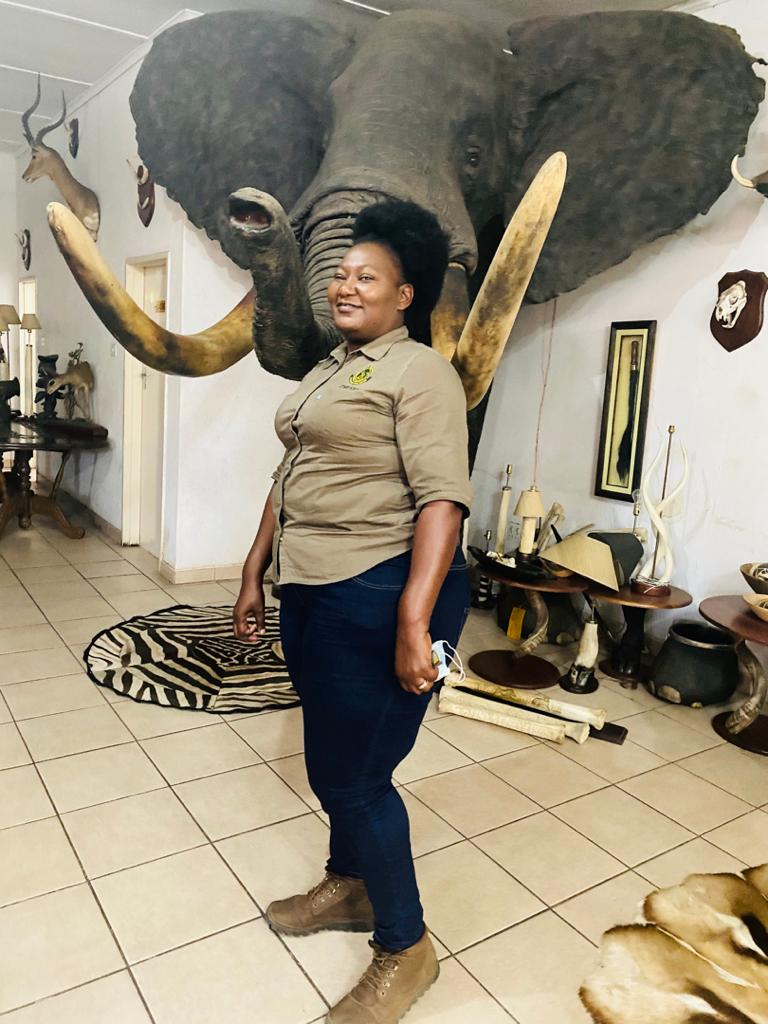This interview is part of a series profiling the stories of the 2024 WE Africa leadership programme fellows, African women in the environmental conservation sector who are showing up with a strong back, soft front, and wild heart.
***

In 2004, the deadliest tsunami in recorded history tore through the Indian Ocean, killing an estimated 230,000 people and displacing 1.7 million.
At the time, Susan Njoroge was working with DHL in Singapore. While the headlines fixated on South Asia, Susan knew that her home region, the East African coast, hadn’t been spared.
The scale of it was incomprehensible. How could something so catastrophic happen just like that?
Susan knew about climate change, but it had always felt…distant.
This time was different. She started digging and stumbled across a report that laid everything bare: Africa and Asia—the continents least responsible for the climate crisis—would be hit the hardest.
She devoured the report’s contents in one night. And then, she cried. For hours. Days. The injustice of it was unbearable. By the time her eyes were dry, something had shifted. Susan knew, without a doubt, that her life could no longer go on as it had before.
She made a promise to herself:
“If I am to invest my time and energy into a career, it has to be in sustainability. Any organisation I work with should include a sustainability docket. If the organisation isn't already advancing sustainability, I’ll need to be given the space to start it. Sustainability becomes my non-negotiable.”
And she meant every word.
***
In her younger years, Susan was one of those kids who would carefully lay out her school uniform the day before a new term. She genuinely loved to learn. “It didn’t mean that my grades reflected my joy for learning,” she laughs. “I was studious with a caveat.”
That love for learning was birthed in the home she grew up in. Education wasn’t just encouraged; it was a way of life. Her mother was one of Kenya’s first secretarial teachers who went on to establish a commercial college. Her father also started a school. Together, they instilled in their five children a deep respect for education.
“They had high expectations,” Susan recalls. “Not just that we’d go to school, but that we’d appreciate the opportunity to learn.”
Report forms in the Njoroge household were discussed in great detail. Her father would sit each child down, comb through their results, and demand an explanation for the grades.
“It wasn’t just, ‘Why did you get a C?’ It was, ‘Was it the teacher? Did you not study enough? What’s your analysis?’ If we didn’t have an answer, he’d give us time to figure it out,” Susan recalls.
Unbeknownst to her then, those conversations, the constant expectation to reflect, speak up and think critically, were shaping her into the woman she would become: Reflective. Articulate. Accountable.
***
Discipline was another big one in the Njoroge household. Growing up on a farm, there was plenty of room for fun but no excuse to be idle. Mornings started early, and chores came first—feeding the chickens…cleaning…doing whatever needed to be done. Sleeping in was not an option. Neither was sitting around waiting to watch TV when it came on at 5 pm.
“Sometimes I joke with friends about how tough my parents were on us,” Susan says. “But in hindsight, I realise they were building people who could stand on their own and figure things out. Sure, it wasn’t fun to do chores or be asked, ‘What are you doing with yourself?’ during school holidays. But looking back, it taught me to stay busy, move forward, learn, grow, and add value.”
If there wasn’t work to be done in the Njoroge home, there was reading. And if there wasn’t reading, there were sports, which Susan loved. Hockey, netball, swimming, track...she threw herself into every available sport in school. Retrospectively, she sees how sports was full of life lessons: How to lose with grace, win with humility, and stay in the game no matter what.
“One time, I was asked to participate in an individual swimming medley, 4x100 meters. That’s 100 meters for each stroke, and it was a lot. No one else could do it. I knew I wasn’t strong in some of the strokes, and I couldn’t face the idea of failing in front of everyone. So, I flat-out refused to participate. Once the race started, I asked myself why I didn’t just do it. Even if I’d come last, I could’ve earned a point or two for the school. That moment taught me so much about what it means to show up for something bigger than yourself,” she says.
***
There was also expectation from her parents to pursue careers that “made sense”. Her eldest brother studied finance, the second one did law, and the third followed the same path. Meanwhile, Susan was still figuring things out or “waffling”, as she puts it. “I mean, who really knows what they want to be at 18? It’s such a strange age to make a lifelong decision.”
At crunch time, she told her dad she wanted to study psychology. “I don’t even know where that came from,” she says, “But it felt right in the moment.”
Dad very firmly shut it down. “You need to choose something practical,” he told her.
Susan doesn’t begrudge him for his stand because psychology wasn’t a viable career choice back then. “Maybe it would have been perfect for me. Maybe it wouldn’t. We’ll just never know,” she says.
***
Susan ended up studying Business Management. “I could talk, sure—but I didn’t imagine I’d thrive in a space that required me to be a communicator. I was a little awkward.”
To her surprise, it came naturally, certainly easier than for most. Importantly, she loved it. Eventually, she moved to Belgium and immersed herself in PR and communications. As part of the corporate affairs team, she began exploring Corporate Social Responsibility (CSR). Whenever a thorny issue arose—like a stakeholder asking, “What are you doing about human rights?” or “What’s your stance on the environment?”—the questions inevitably landed on the corporate affairs desk. That’s where she sat. It felt right because it aligned with her values.
“Growing up in Kenya, I was always aware of poverty and inequality. There was always the unspoken understanding that if you can help, you help. My parents instilled that in me without ever saying it outright,” she says.
The deeper she went into CSR, the more the questions started to surface: What are companies doing? Why aren’t we proactively taking care of people and the environment? Why isn’t it just the norm to do better—for society, for the planet?
One of the bosses in her department started calling it corporate citizenship—and that term immediately made sense. “If I, as a citizen, have a responsibility to contribute and improve things—then the same should apply to companies. As corporate citizens, they should be held to that same standard of responsibility and care,” she says.
To learn more, Susan took courses on environmental management and became an auditor to promote ecological practices in her organisation. Whenever she noticed new trends, she learned about them and applied that knowledge to her work. She had found work that gave her purpose and meaning. Then, the tsunami hit and the stakes skyrocketed.
***
After working for over 2 decades in the private sector in sustainability and communications, Susan founded her organisation, Responsible Business Consulting (RBC). Here, she provides consulting in sustainability, communications, strategy, capacity building, and project management for companies.
Her vision is to create a world where people care for each other and for the future. “Sustainability is the vehicle that drives my agenda,” she explains. “And I use my knowledge, skills, networks and expertise to make it happen.”
But Susan knows this isn’t just about one person or the government. “We all have a role to play,” she says. That’s why RBC also holds dialogues and media campaigns focused on raising awareness and understanding of sustainability.
Susan is also a senior associate at the Cambridge Institute for Sustainability Leadership (CISL) and an Executive Fellow at Strathmore Business School. Her work is centred on building leadership that can deliver sustainable development that’s tailored to Africa’s needs.
“Often, on matters sustainability, people speak on our behalf,” she says. “And yet, we, the people of this continent, are the ones who understand our pain, our challenges, and our solutions. We know what works, and we know the kind of world we want to build for our children,” she says.
Susan’s clarity and passion are not in question. Does she feel like she chose sustainability, or did sustainability choose her?
“Call it a divine calling,” she says. “Yeah, I’ve reached that point where it’s not just a career—it’s who I am. So now I ask myself, what am I doing to embody it across all aspects of my life?”
She says this realisation of the whole self has been one of her biggest takeaways from the WE Africa program. “I don’t think I would’ve reached this point without WE Africa. It guided me through a personal leadership journey by asking: Who do I choose to be in this world, and what am I going to do about it? And because sustainability is what I’m choosing, I want to apply myself fully to it.”
“There used to be ‘Susan the career woman’, ‘Susan the family member’, ‘Susan the sister’, each trying to do ten different things. But all of these roles were just one Susan trying to do 30 things—and that’s impossible. Now, I can see the bigger picture and prioritise what truly matters across all areas of my life.”
The coaching from WE Africa, she adds, was also a godsend. “Friends give you a lot—but friends also love you. They don’t always tell you what you need to hear or make you question how you see things because they don’t want to hurt your feelings. On the other hand, a coach is there to help you process and work through the difficult stuff.”
“Through coaching, I’ve realised the value of feeling stuck. The key, of course, is not to stay there. But being stuck has become a signal to reflect—have I forgotten my why? Is that why the energy is gone? Or am I looking at things too narrowly and need to bring in other perspectives?”
And to top it all, for Susan, the greatest gift from WE Africa has been the sisterhood. She explains:
“It’s hard to even talk about it without getting emotional. It’s truly been an honour to walk this journey alongside the women in my cohort. They’re not just brilliant professionals—they’re extraordinary human beings. Knowing there are like-minded women across this continent, each doing her part and fighting the good fight, gives you strength. You don’t show up as just one person. You show up carrying the power of hundreds, thousands of women beside you. It straightens your back and gives you the courage to take up the space you need to create the change you’re here for.”
***
The following statement was written and shared by Susan Njoroge during her graduation from the WE Africa Leadership Program in December 2024:
What if I shine?
I choose my Higher Power’s path with courage and purpose,
I am nurtured by my values, my well-being and my community,
And so, I stride
I stride forward taking centre stage in the arena of my life
I use what I have in my hands and in my heart with savvy
And I create
I create and foster action and movements for people, for Mother Earth for prosperity
Yes
I do my part to create a world where we care about each other and our shared future.
Susan Njoroge, WE Africa 2024 Fellow





